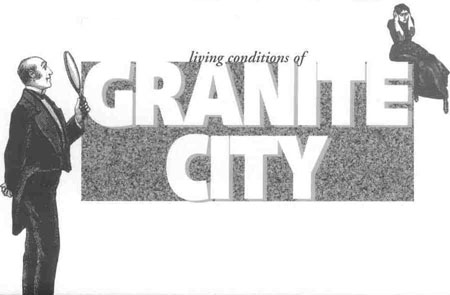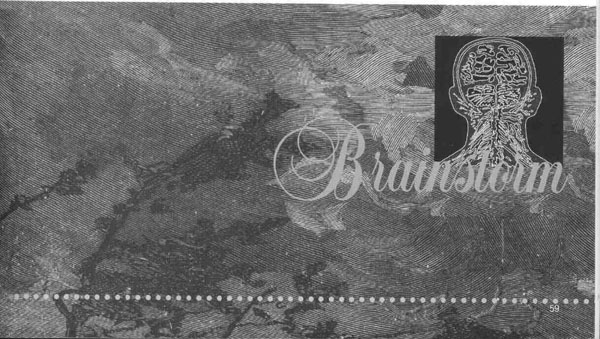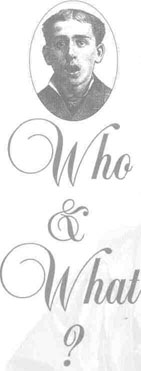C U R R I C U L U M M A T E R I A L S
|
David E. Goss
Overview
Main Ideas
Several important lessons can come from this study. One is that what happens in the world affects where we are. Another is that where we are located can be a reflection of what is happening in the world.
Further, the study of where we live can reveal to us much about our own values. As we discover more about who our neighbors really are, insight into what motivates them and ourselves can emerge. Stories of pain, accomplishment, survival, conflict, courage, loneliness, and community can be treasures. Even more, these stories can be models, perhaps even sign posts, to students as they mature in their thinking about life.
Connection with the Curriculum
What happened (or is happening) "over there" or "somewhere else" is rarely of interest to students. But discovering people in their local community who came from over there or who can recall how ancestors came to be where they are can personalize geography. Learning about the interactions of their community can give students insight into the forces that both encourage and discourage the deeper meaning of community. The Bulgarians who lived in southwestern Illinois exemplify those patterns.
Teaching Level
Grades 7-12
Materials for Each Student
• A copy of the narrative portion of the article
• Activities 1-4
• Access to a tape recorder and quality tape
Objectives for Each Student
• Learn more about his/her community by discovering the ethnic background of a citizen or family
• Appreciate the push-pull forces involved in migration
• Gain insight into the integration process that confronts most newcomers
• Analyze the melting pot concepton a local level
• Recognize the enriching contributions of various ethnic groups
SUGGESTIONS FOR
TEACHING THE LESSON
|
Opening the Lesson
Why did people originally move into your community? What was there to attract them? Why did they move from somewhere
56
else? Did they leave because of conflicts?Were they seeking economic opportunities?
We are going to explore these and many other questions. First, we will read an account of one such migration. At the turn of the century a large number of mostly men left Bulgaria for the United States, many settling north of East St. Louis. Teachers should recall the following about Bulgaria: the role of Russia in creating modern Bulgaria in 1878; an economy almost totally based on peasant agriculture; limited natural resources for industry; numerous conflicts with neighbors over disputed lands; and Bulgaria's location east of Greece and north of Turkey.
Interest may lead the teacher and students to explore further the centuries-old conflicts, often in the name of religious persuasion, that have made life difficult in this region. Several items, for example, can be found on Magellan Internet Guide.
Developing the Lesson
After students have read the narrative portion of the article, have them answer the questions in Activity 1. This will give them a basis for class discussion and lead to the next lesson.
Concluding the Lesson
We have defined the community not so much as a geographic place but as an identity. For various reasons people moved here, with some staying and some moving away. Together the various families and institutions illustrate the healthiness of our community. It is as much the stresses as the harmonies, the failures as the accomplishments, and the tragedies as the celebrations that define the community's health. In the end our community is us and we are the community.
Extending the Lesson
Students may also conduct interviews, making more personal their knowledge of their community.
Defining the area is important. Students could be grouped around city blocks, a section of a town, an ethnic neighborhood, the area around a religious structure, or whatever is appropriate.
Working in teams of two and using a tape recorder, interview people who have recently settled there or can recall stories of their ancestors settling there.
Students should prepare by knowing - (research, class discussion) as much about the area as they can. Also, prepare questions before hand (see Activity 4) even though students will probably be modifying and adding new questions during the interview.
The tape recorder should be tested before hand. Pre-record "This is an interview of ___________________, on _________, at _______________________by ______________________." Permission (an introductory note from the teacher and explanation of the project) from the interviewees to interview and record is essential.
After the interview, a transcription (which could be recognized by the Language Arts teacher as a graded activity) will allow the interviewers to "see" what they have heard. Together, the transcriptions will become a valuable document about the community.
Students may compile a collection of the interviews, use them as a basis for articles in the local newspaper, or publish a booklet.
Assessing the Lesson
Evaluation could also take the form of a class discussion. Do students better understand their community? What makes it unique? How is it diverse? Is that best or should it be more homogeneous? How is it dynamic? How is it changing? How can students have a role in making it more vital?
57

- Using historical imagination, write phrases that you think might describe the fears, hopes, and dreams of these Bulgarian immigrants. Why did they make the long, dangerous, and expensive trip to America?
- Write some phrases that describe their living conditions in Granite City. How do you think such conditions would have affected their feelings about themselves, their employers, and those (such as landlords and store and tavern keepers) who benefited from their limited language skills, loneliness, and isolation from the established community?
- Institutions such as churches and synagogues, social organizations, and even newspapers are created to serve people. What evidence did you find that this was the case for these Bulgarian-Americans?
- Often our lives are dramatically affected by events beyond our control. Two are mentioned — the stock market crash of 1907 and the First Balkan War in 1912. Use several phrases to describe how these two events could have affected their lives.
- Most communities/neighborhoods can point to an individual whose energies have benefited others. Use a variety of phrases to describe the role of Tzvetko Bagranoff.
- Again, using your historical imagination, write phrases to describe how you think "others" thought of these public displays of Bulgarian nationalism. What further problems would have Bulgarian-Americans siding with Germany (the Central Powers) in 1915 have created?
- Write a few phrases on the advantages and disadvantages of keeping the traditions and languages of our ancestors versus enmeshing ourselves into popular American culture.
A second use of this lesson could be to examine what has attracted (or is attracting) people to your community. As these Bulgarians left an economically stagnant and politically difficult area for the promise of a "better life" in midwestern America, so people settled in your community for similar reasons.
58

- Define your community (a town, area of a city, neighborhood, housing complex, a rural district).
- Brainstorm in small groups: How, when, and why did our families and others we know well settle here? Record your ideas for later use.
- What were the promising opportunities in a past period (such as land development, factory openings, need for specialized labor, mine openings, relocation of business headquarters)?
- How do then and now compare? Are the original opportunities gone? Changed? Been replaced? How has the "look" of the community changed over the years?
- Finally, make a written and/or oral summary to the class and compare notes. Your collective findings and insights could take the form of a written report to be shared with a wider audience.
Who has had a role in dealing with conflict resolution in your community? Perhaps there are several, some of whom are currently working for helpful change or improvement.
The article mentions the displacement of Hungarians by Bulgarians in Granite City. Perhaps your community has experienced ethnic conflict in the past, or even in the present. Invite someone who has played this role to visit your class. This person could speak of his/her role or someone else's role.
Students could write an evaluation of the presentation (Activity 3).
59

- Who is the speaker? What is his/her relationship to the community?
- What were the troubles or conflicts? What person or groups were involved?
- How were these resolved or reconciled? Or, what progress has been made?
- Speculate: What might have happened had there not be intervention?
- Application: How is this person a model for my life? What would I have done differently?
60

Person(s) Interviewed ______________________________________________
When and where ____________________________________________________
By whom _________________________________________________________
What brought you/your family to live in this community? (Or, if second [or more] generation, your ancestors?)
From where did you (they) come? Why did you (they) leave?
What adjustments did you (they) have to make after coming here?
How were you (they) accepted?
What organizations, helped you (them) "settle in"?
How has the community changed over the years?
Have these changes been for the good or bad? Why?
What makes this community unique?
What are its strengths? Weaknesses?
What are the forces helping (or hindering) us becoming one community? (Or, you may choose to ask if the person thinks having a diverse community is better.)
Remember to thank the person(s) and again repeat how you and your class are going to use the interviews.
Click Here to return to the Article
61
|




